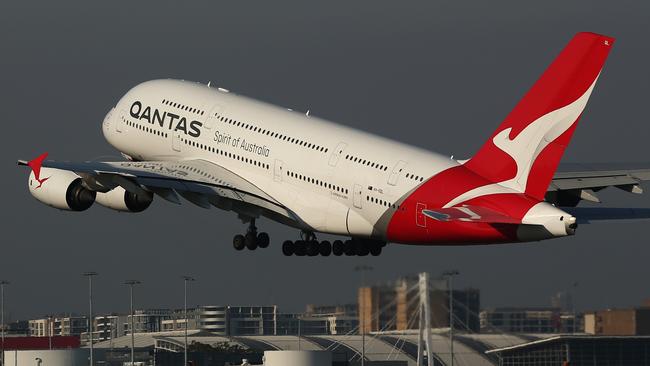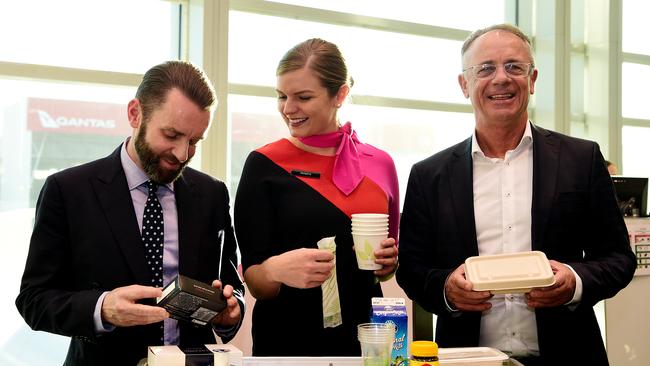Qantas says flight delays due to climate change
A Qantas exec has blamed climate change for delays, based on above average wind strengths.

A Qantas executive has blamed climate change for worsening flight delays, based on above average wind strengths at Sydney airport this year.
Speaking at the airline’s investor day, Qantas Domestic chief executive Andrew David said all carriers had seen a deterioration in on-time performance year-on-year for the past three years, as well as increased cancellations.
READ MORE: Qantas sets out course for higher margins | Qantas pushing Boeing, Airbus, pilots to realise Project Sunrise
Federal government aviation data shows that in September, 76.2 per cent of flights across all airlines landed on time, compared to the long-term average of 82.3 per cent. On-time departures averaged 78.4 per cent, compared to a long-term average of 83.7 per cent. Cancellation rates were also up at 2.2 per cent compared to 1.5 per cent over the long term, and Qantas cancelled 3.3 per cent of flights in the month.
“This has been caused by two factors,” Mr David said.

“One is the impact of climate change in the last four months. We have seen wind velocities 34 per cent higher than the average of the last 30 years, and it’s a prevailing westerly rather than the south-south-westerly we’ve seen in the past. That’s led to runway closures, meaning (aircraft) movements are slowed. Add that to the issues we face in Sydney and Melbourne in peak hours and that has led to a degradation in on-time performance.”
A Virgin Australia spokeswoman said the airline continued to deliver a strong on-time performance and regularly reviewed operational issues to ensure it could respond to weather-related disruptions.
The Bureau of Meteorology confirmed a higher prevalence of strong crosswinds at Sydney airport between July and September compared with the past 20 years but a spokesman said they had no published research on the connection between climate change and winds.
Qantas’s concerns around climate change and sustainability were prominent throughout the investor day presentations at the airline’s headquarters in Mascot, Sydney. Government, international and regulatory affairs executive Andrew Parker said the Qantas Group took the “urgent challenge to deal with climate change very seriously”.
“We have significant plans to minimise both our emissions and a broader environmental plan. We believe this is at the core of our social licence,” Mr Parker said. “The Paris target of 2015 limiting global warming to no more than 2C was an important start and step in tackling climate change … but the evidence is now emphatic — 2C does not go far enough. Limiting warming to 1.5C must be the new global focus.”
To that end, Qantas planned to have zero net carbon emissions by 2050 as part of a long-term environmental campaign that factored in growth.
Mr Parker said moves by countries such as Sweden to limit the number of flights taken by its citizens was “not a vision” Qantas shared. “Concerns about emissions and climate change are real and serious but we can’t lose sight of the contribution air travel makes to an open, liberal society and growing economy,” he said.




To join the conversation, please log in. Don't have an account? Register
Join the conversation, you are commenting as Logout